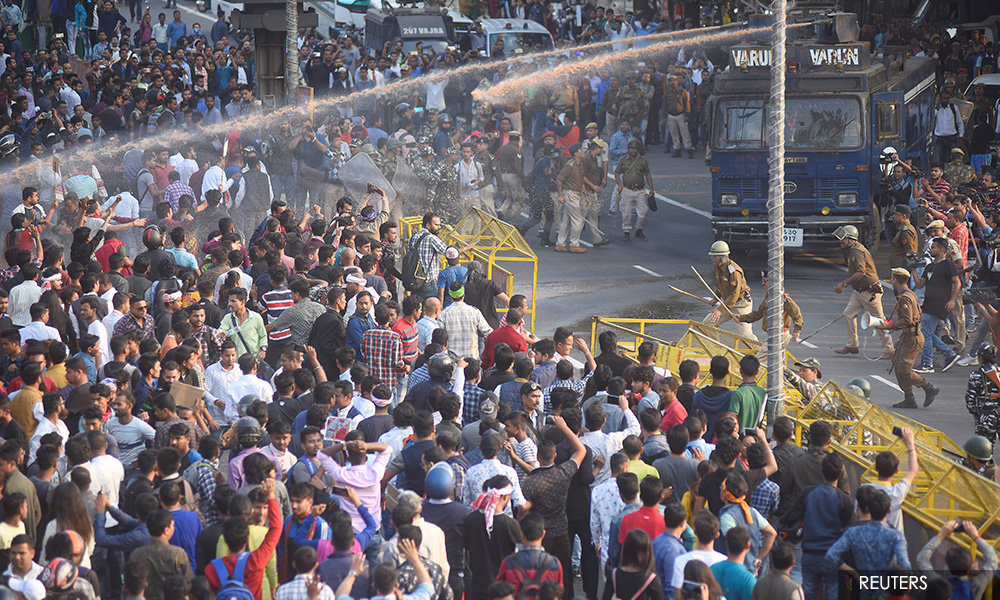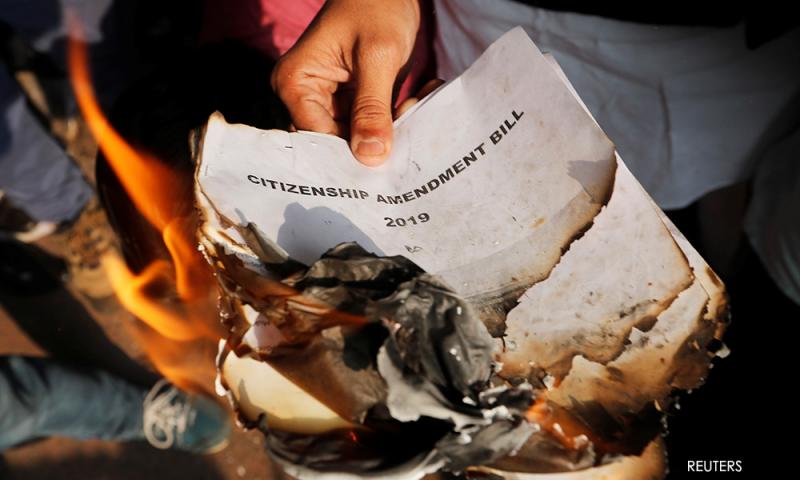Communal politics begets communal reactions
LETTER | There is an interesting article by Satees Muniandy with the heading "Who is advising the PM on Malaysia's foreign affairs?".
The article relates to Prime Minister Dr Mahathir Mohamad’s criticism of the Indian government on the Citizenship (Amendment) Act 2019 which is seen as discriminatory against Muslims since it accepts Hindus, Sikhs, Buddhists, Jains, Parsis and Christians while ignoring Muslims.
It is surprising that the writer, who comes from a secular party, has not questioned why religious identification is important for oppressed groups when oppression and violence are a universal phenomenon.
As for Mahathir, who was playing to the tune of the Muslim political audience at home, he was wrong to have made a citizenship comparison in this country in regard to Chinese and Indians when the law in India is not about the citizenship of Indian Muslims who have been in India for generations.
If he was authentically opposed to the law and its discriminatory nature he should have questioned why Tamils from Sri Lanka were also excluded. It is a well known fact in political circles and through policy, that the Bharatiya Janata Party (BJP)-run government has a good relationship with the right-wing Singhalese government in Sri Lanka, and India has always been against Tamil nationalism. This could be the reason that it has rejected the inclusion of Tamil refugees.
It is ironic that certain leaders in the DAP while being against ethnoreligious politics in Malaysia, are quick to support the Indian government where the mainstream BJB politicians are similar to Umno and PAS in the nature of approaching politics in the country.
While Mahathir tries to trigger the Muslim world with his communal vision and politics, it is sad that certain DAP leaders are quick to respond without thorough analysis of the law and its discriminatory nature that is very much rooted in Hindu Nationalism or Hindutva ideology that tends to create a dichotomy between different religious groups in the country.

This is the reason that the southern part of India that consists of states like Tamil Nadu and Kerala has vehemently opposed the law because of its discriminatory nature that violates the secular constitution of India.
In the current context of the rise of populism and nationalism which takes on an ethnic and religious tone around the world, it is vital to comprehend the underlying ideology of parties and policies of those who come to power who use nationalistic emotional ethnoreligious rhetoric, and the policies they come up with that caters to such thinking.
For example, US President Donald Trump came to power by stirring up emotions of the masses against immigrants. This was done in a context where white Americans have been unemployed over a period of time and the widening gap between the super rich and the poor.
The Trump administration then came up with the policy of restricting migrants from certain Muslim countries and Mexico. In the policy formulation, there is a clear demarcation that divides Americans from migrants, even though the nation itself was built by migrants and has a strong secular constitution.
In a similar policy in substance, but in a different setting and context, the BJP government has also used a similar ideology where it divides people according to majority and minorities and specifying it ethnically or religiously, and by doing so it deprives others of the same treatment.
The latest citizenship laws bear testimony to the underlying attitude of Hindutva ideology which has similar characteristic to right-wing movements around the world which includes Malaysia in the likes of PAS, Umno and Bersatu.
What makes it interesting and puzzling is when there is a communal nature in one’s perception on a given issue, what comes out in a discourse is also communal but disguised as human rights or so-called wanting to remain in good relations with a bigger country.
The writer is the secretary of the Ipoh-based Association for Community and Dialogue.
The views expressed here are those of the author/contributor and do not necessarily represent the views of Malaysiakini.
RM12.50 / month
- Unlimited access to award-winning journalism
- Comment and share your opinions on all our articles
- Gift interesting stories to your friends
- Tax deductable
